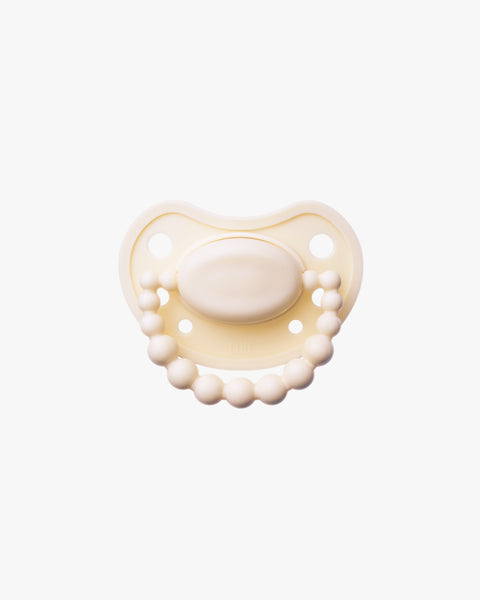Scanty menstruation – what is it?
Some people were born under a lucky star and from the first period onwards, their cycles are asymptomatic. Bleeding is not bothersome, the ovaries allow you to live without pain, and the unbearable PMS is black magic to them…
If your period is usually rather scanty and does not cause any unpleasant symptoms, you have nothing to worry about. However, if you notice changes in the abundance of your period and would like to measure how much blood you actually excrete during menstruation, I invite you to read our article , in which you will find tips on how to perform such measurements as efficiently as possible.
During your period, your body doesn't just expel blood - it's just a component of menstrual fluid . It's assumed that out of 100 milliliters of menstrual fluid, about 40 to 60 milliliters is blood. Remember, however, that this is an approximate value!
According to this data, a light period is one during which your body excretes less than 40 milliliters of blood in your menstrual fluid.
One-time heavy or scanty bleeding should not cause you to worry - if you notice any changes, observe your body (and well-being) over 3 cycles . And if you do not have heavy periods, do not want to dirty your panties, and a pad is too much, do not forget about our panty liners . Thanks to their ultra-lightness and slim shape, you will forget that you are wearing them. We guarantee: your comfort level will change for the better, and the environment will thank you one day!
When are scanty periods… too scanty?
A scanty period ( hypomenorrhoea ) , just like heavy periods (which we wrote about in another article , also worth reading!), can have various causes and indicate more or less serious ailments and changes in the body. It can result from stress, fatigue, a sudden change in lifestyle, mental disorders, pregnancy, and finally from various diseases. One thing is certain: it should not be underestimated!

A healthy person's menstrual cycle usually lasts about 28 days (with a variation of up to 4 days), and the first 3 to 5 days of the cycle are menstruation . During this time, the endometrium, or lining of the uterus, is shed. This is when the body excretes menstrual blood , and the level or intensity of this process depends on many factors.
Scanty periods – potential causes
A very short period can have various causes. Common causes include, for example, long-term stress and chronic fatigue – in such cases, the basic recommendation is to change your lifestyle (or at least implement calming, relaxing practices that will help relieve tension). It is worth focusing on regenerating the body, getting enough sleep, and physical activity (such as yoga or pilates). In more serious cases, when chronic stress is accompanied by anxiety disorders, a visit to a psychologist or psychiatrist is necessary.
Too scanty periods also occur as a result of intensive physical training . This condition is often faced by people who do sports professionally, who subject their bodies to long-term and strenuous exercises without the possibility of providing themselves with time for proper regeneration. Information not only for athletes: our body, in order to function properly, must have time to rebuild and rest!
Are you taking hormonal contraception ? Scanty bleeding is often associated with it. The hormones contained in birth control pills affect the endometrium – they inhibit the proliferation of its cells (it does not build up to the same extent as in a natural cycle). You can learn more about this topic in our article: Birth control pills and your period .
A scanty period can also be the result of eating disorders . Anorexia, bulimia and orthorexia are diseases that destroy not only the brain and psyche, but also the body. Underweight, excessive weight loss, vomiting or excessive adherence to a diet often affect the amount of blood during the period. In some cases, with rapid changes in body weight, there is even a long-term lack of menstruation. This, in turn, can cause serious hormonal disorders and irreversible changes in the body.
The cause of scanty periods may also be the entry into the premenopausal period . During this time, the ovaries gradually cease to function and they begin to produce less and less estrogen. This often results in irregular, scanty bleeding. If you want to learn more about menopause, read our article here .
Scanty menstrual bleeding and diseases
Too little menstrual blood may result from diseases in the body. The specific cause of this condition, after a series of appropriate tests, will be determined by a gynecologist.
One of the common diagnoses is hormonal disorders . In turn, under the guise of this broadly understood concept, various anomalies may hide:
- Polycystic ovary syndrome (PCOS) is a disease that is difficult to capture in a few sentences; one of the treatment options is the use of hormonal contraception .
- Hyperprolactinemia – increased levels of prolactin (luteotropic hormone).
- Thyroid diseases .
The cause of scanty menstrual bleeding may also be Asherman's syndrome . This is a very rare, acquired gynecological disorder. Most often, it is the result of a previous curettage of the uterus.
Is This Pregnancy? Implantation Bleeding
It’s easy to confuse scanty periods with spotting – and if you’ve read our article on the subject, you know that spotting is a kind of clue from your body. Some of it can be a sign of pregnancy, and we call it implantation bleeding .
For some, implantation bleeding may be a long-awaited signal, for others – a big surprise. This type of spotting is a sign of the embryo implanting in the uterus and is often one of the earliest symptoms of pregnancy.
This type of bleeding usually occurs around the same time you expect your period. It is easy to confuse them, especially when your period is not usually heavy. This type of bleeding is often scanty, but it is worth remembering that for some people it looks like a normal period. It lasts from a few hours to a maximum of 3 days and is not accompanied by any additional discomforts associated with a period. However, if, in addition to spotting, you experience nausea, are sensitive to smells, are tired and sleepy, it is worth taking a pregnancy test.
No matter how attractive the vision of scanty bleeding may seem, don't ignore it. Observe your body, especially during menstruation, when it deserves special care and understanding.
Created at: 05/08/2022
Updated at: 12/08/2022












































































































































